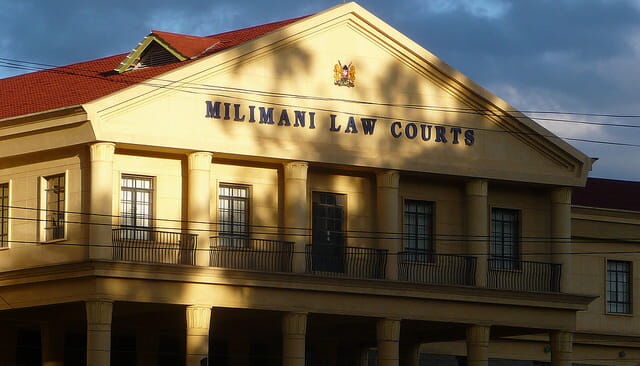A major twist has hit President William Ruto’s plan to privatise the Kenya Pipeline Company (KPC) after the High Court in Nairobi stepped in and stopped the sale, at least for now.
The court issued a temporary order blocking the government from selling any shares in the company. This means that until the case is fully heard, the National Treasury cannot offer for sale, transfer, or deal with KPC shares in any way.
The order was made on Friday morning by Justice Bahati Mwamuye. The decision came after a petition was filed challenging the government’s move to privatise the state-owned oil transporter.
“Pending the inter partes hearing and determination of the applicant’s notice of motion dated 14/08/2025, a conservatory order is hereby issued restraining the Respondents from offering for sale any shares of the Kenya Pipeline Company,” the ruling read.
The judge directed the petitioners to serve the application to the government and other interested parties before the next hearing.
Justice Mwamuye also gave clear timelines: The government and interested parties have until August 22, 2025 to file their responses. The petitioner can file a rejoinder by August 29, 2025, if necessary.
This legal drama comes just two weeks after the Cabinet approved the sale of KPC.
In a Cabinet statement dated July 26, 2025, the Ruto administration argued that privatising KPC would allow the private sector to drive efficiency, growth, and innovation.
The statement read:
“The decision reflects the government’s policy shift toward reducing its role in doing business and instead enabling the private sector and industry experts to drive growth, efficiency, and innovation.”
This is part of a broader government strategy to reduce state involvement in commercial enterprises and open them up to private investment.
However, the announcement sparked strong resistance from KPC workers. Many employees expressed deep fears that private ownership could lead to mass job losses.
They argued that a private buyer would likely restructure the company, putting many livelihoods at risk.
One employee who spoke anonymously said:
“We have seen what happens in other companies once they are privatised. People lose jobs, benefits are cut, and everything changes overnight. We are worried the same will happen to us.”
Energy and Petroleum Cabinet Secretary Opiyo Wandayi has denied that the sale would result in job losses.
Speaking to reporters, he said:
“We do not foresee any job losses or any restructuring to the current job structures at KPC. Employee welfare is protected under existing legal frameworks.”
Wandayi insisted that workers’ rights and benefits would remain intact, even under private management.
The case has quickly become a hot political issue, with opposition leaders accusing the government of trying to sell national assets without proper public consultation.
Critics argue that KPC is a strategic state asset that plays a key role in Kenya’s energy sector, and privatising it could put the country’s fuel supply chain under private, and possibly foreign, control.
Supporters of the sale, on the other hand, say privatisation will help end inefficiencies and corruption that have plagued the company for years.
The court will hear the case after all parties submit their documents. If the conservatory order is upheld, the privatisation process could be delayed for months or even blocked entirely.
For now, President Ruto’s big plan to privatise KPC is on hold, and both sides are preparing for a heated legal battle.
This is not just about the sale of a company, it’s about jobs, national security, government policy, and Kenya’s economic future.
The next hearing will be closely watched by politicians, investors, and the public.






